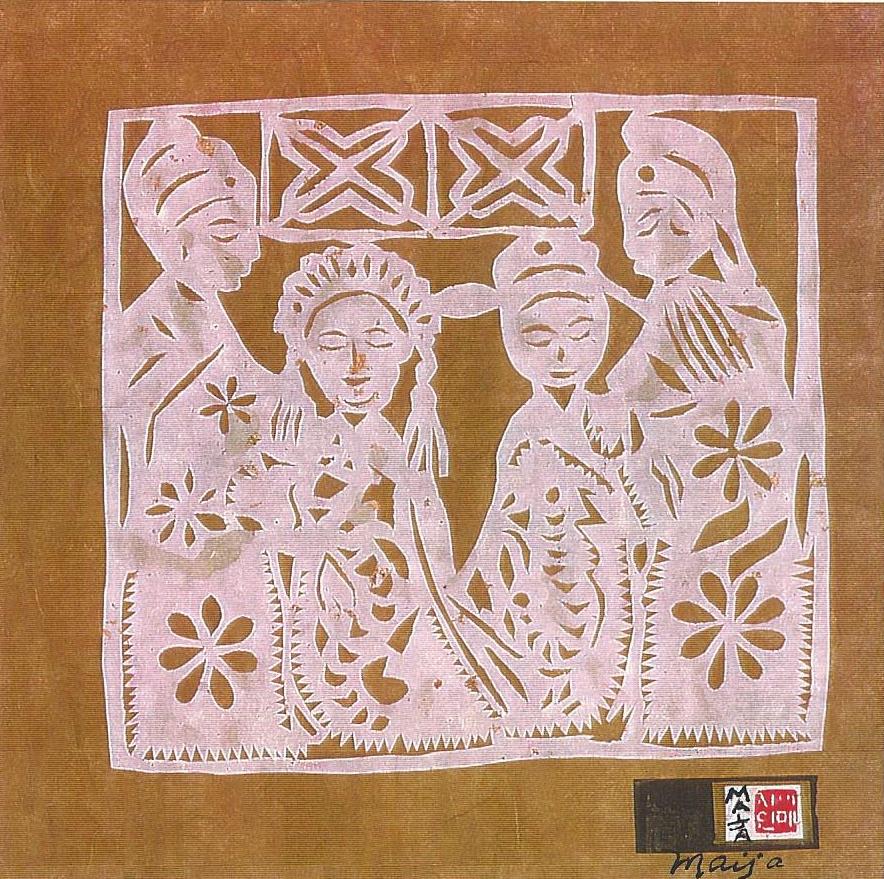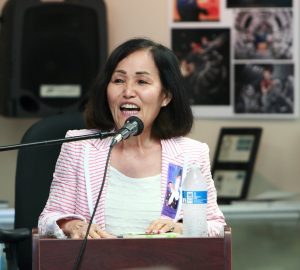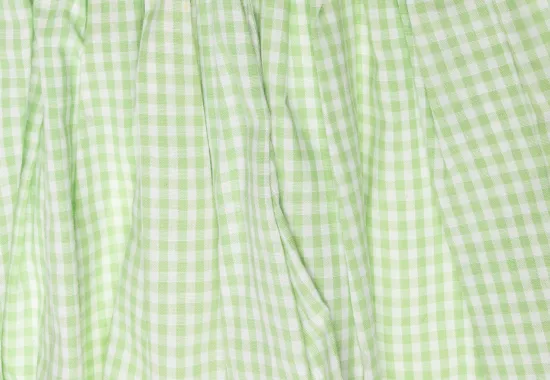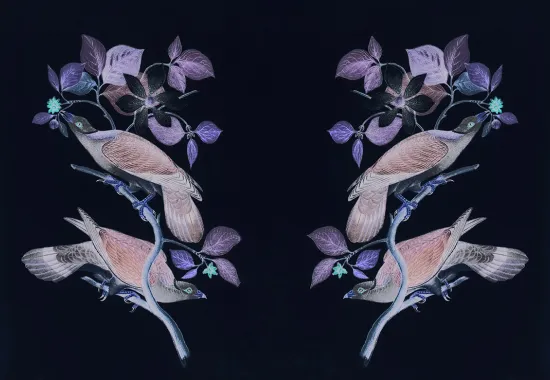Throwback Thursday featuring Maija Devine from issue 291.1

 “Chinese Bride, 1999” was inspired by a story Xiaolong (“Little Dragon”), one of my Chinese students, told me about his sister during the fall semester of 1998 when I taught English at Nanjing University, Nanjing, China. Many in my class of about twenty-five students already had American names and Xiaolong’s was Kevin. He loved to sign his letters and e-mail messages with “from Kev.” He had an older sister, which meant that if he was conceived after 1978, he would have been aborted as he would have been the second child. China’s one-child policy was introduced between 1978 and 1980 and did not begin to be formally phased out until 2015. Luckily for him, he was born just in the nick of time—in 1977. Since the Chinese maintained the centuries-long Confucian tradition of valuing sons over daughters, one can imagine the thrill his family experienced when he was born.
“Chinese Bride, 1999” was inspired by a story Xiaolong (“Little Dragon”), one of my Chinese students, told me about his sister during the fall semester of 1998 when I taught English at Nanjing University, Nanjing, China. Many in my class of about twenty-five students already had American names and Xiaolong’s was Kevin. He loved to sign his letters and e-mail messages with “from Kev.” He had an older sister, which meant that if he was conceived after 1978, he would have been aborted as he would have been the second child. China’s one-child policy was introduced between 1978 and 1980 and did not begin to be formally phased out until 2015. Luckily for him, he was born just in the nick of time—in 1977. Since the Chinese maintained the centuries-long Confucian tradition of valuing sons over daughters, one can imagine the thrill his family experienced when he was born.
His sister’s story moved me as much as his luck of being born just before the one-child policy set in. She is the “Chinese Bride” in the poem. I do not have a photo of her but I have one of Kevin. I attached it here.
As far as I know, she never realized her dream of coming to the US to study in college, to taste freedom from gender bias, and to pluck money and fame from the “money and fame trees” that “grow for women, too,” as described in the poem. However, Kev tells me she is happily married and is a mother to a son. They named him Suowei, “Our Future Depends on You.” In the poem, Kev’s Chinese name appears as Suowei. I gave Kev his nephew’s name order to dramatize Kev’s importance—in contrast to the low status of his sister, and her having to sacrifice for Kevin’s success in life, which was the goal of the whole family.
While Kev explained to me that his nephew’s name meant “Our Future Depends on You,” he also told me that depending on which Chinese characters were used, Suowei could mean, “Never Mind”! But of course, I did not include that in the poem!
Kev did not disappoint his family. He became a successful professor at the University of Australia and he and his intelligent and lovely wife have two children—a daughter and a son—a dream family they might not have been able to enjoy if they lived in China.
“Chinese Bride, 1999” (issue 291.1) and another poem, “China, 2004,” (NAR, Vol. 290.3-4, May-August 2005) were reprinted in my poetry chapbook, Long Walks on Short Days (Finishing Line Press, 2013). Other poems in the chapbook include poems about Korea and parts of the US.
UPDATE: The Chinese Bride's son, "Suowei, a 10th grader, now lives with Kevin in Australia. It's very fashionable for Chinese (and people of other Asian countries) to send their children overseas to get education. He is in a way fulfilling his mother's dream to get college education in America by attending a high school in Australia and undoubtedly going on to college there or maybe the U.S.
Kevin's note to me: "It's a pleasure to use our photos. What a beautifully written poem and it does't matter how many times I have read it - thank you Maija. I have forwarded the NAR link to my sister and Suowei. My sister and my brother in law (Qi) visited me in Australia last November. Attached is a family photo taken in front of my house in Canberra: my sister, my brother in law, Suowei, Victor, Hannah, Li and myself.
Recommended
The Shirt
After Hearing David Rothenberg Sang with Birds
Frothing Pink Poodle Droppings







